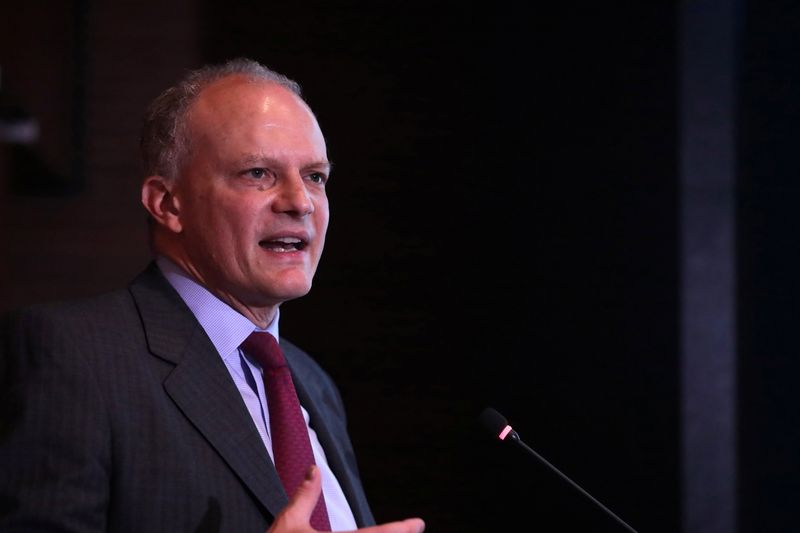NEW YORK (Reuters) – Salvadoran bond spreads narrowed on Wednesday to their tightest since December 2021 in a rally triggered by hopes a key new adviser to the finance ministry would be able to help secure a debt deal with the International Monetary Fund (IMF).
The tightening started on Monday after news that Alejandro Werner, former director of the Western Hemisphere Department at the IMF, had been appointed as an adviser by the Ministry of Finance.
“The market rallied on the hope the appointment would accelerate the perspective of an IMF program for the country or at least that Werner would help the government formulate a medium-term fiscal framework,” said BNP Paribas’ Nathalie Marshik in a Wednesday note.
Werner may have been appointed months ago “but the market is only finding out now”, she said.
The bond spread, or premium to comparable U.S. Treasuries, remains among the highest in Latin America as it dropped to 1,354 basis points (bps), having hit a historic high near 3,500 bps last July.
Bloomberg reported on Monday that Werner was seen on Friday at a meeting with finance minister Alejandro Zelaya and investors in Washington.
The finance ministry did not respond to a request for comment but Zelaya told local TV late on Wednesday that Werner “is collaborating with the government”, helping “not only to seek an agreement” with the IMF but with a long-term vision.
El Salvador is effectively locked out of global debt markets, its bonds trading at yields of 16% and above.
“We believe this appointment is yet another effort by the authorities at polishing their image with markets in the hope of a bond issuance,” Marshik wrote.
The IMF Board met in March to discuss findings of a staff visit to San Salvador, but the Salvadoran authorities did not consent “to publication of the staff report and the related press release,” the IMF said.
Werner was at the fund in 2021 when the Salvadoran government was requesting an IMF program of more than $1 billion, but talks were derailed first by a series of moves by the government of President Nayib Bukele that were criticized by Washington, and later by the adoption of bitcoin as legal tender.
Last Thursday, the current acting director of the IMF’s Western Hemisphere Department, Nigel Chalk, said there is potential for a deal, but the Salvadoran government had not yet requested a program and talks were ongoing without a “particular timetable”.
(This story has been corrected to change the figure to 16% from 50%, in paragraph 8)
(Reporting by Rodrigo Campos in New York and Nelson Renteria in San Salvador; Editing by Sonali Paul)
